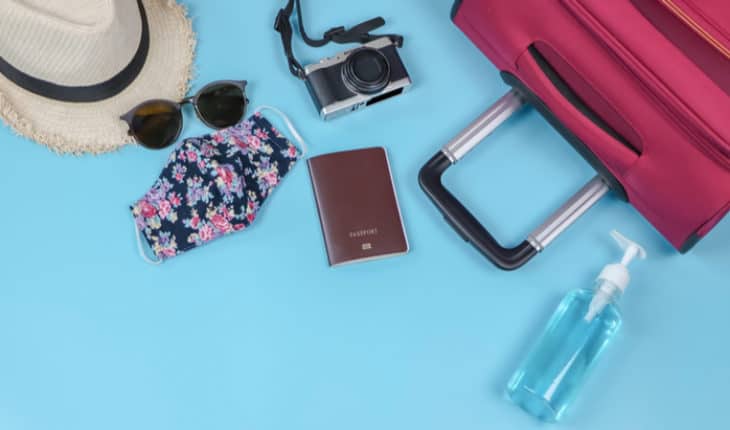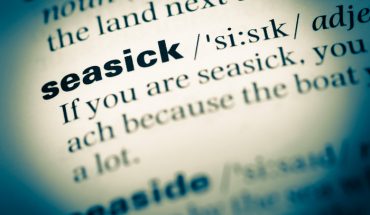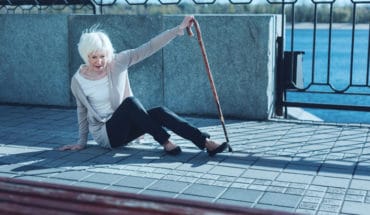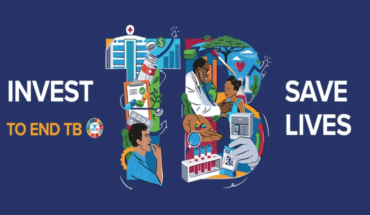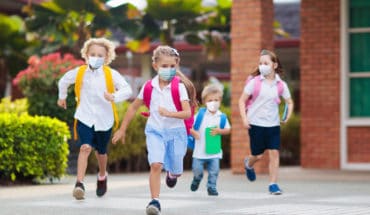Many countries around the world are now easing travel restrictions. They are looking to restart domestic and international travel. China and US are the world’s two largest air travel markets. They have made a big decision to ease travel restrictions, aiming to revive trade and tourism.
There is however still the absence of a coronavirus vaccine. Along with no uniformly implemented health and safety guidelines. Many travellers may worry about the risks of travel. In this article, we take you through what to expect on your holiday abroad during Covid-19 and outline the safety measures in place.

Booking your Holiday:
Chief economist at International Air Travel Association Brian Pearce says:
“Restarting international travel will depend on the confidence of health authorities in the state of domestic transmission of the virus. It will involve government confidence in accepting travellers from other countries, and that confidence replacing the fear of importing the virus.
Around the world, we are starting to see “travel bubbles” and “air bridges” to encourage tourists to return and boost struggling economies.
The UK have just announced the reduction of travel restrictions to nearly 50 destinations. Some of these are reciprocal, but many may still be subject to quarantine restrictions from the destination country.
Many Countries are now prepared to welcome UK travellers and the airlines desperately need us to feel confident to travel with them.
Some destinations may still require you to abide by quarantine restrictions.
Important questions to consider before booking your holiday abroad during Covid-19:
- Is COVID-19 spreading where you are planning to go?
- What are the quarantine restrictions for travellers from the UK at your destination?
- Is COVID-19 spreading in your community?
- Are you or those you are traveling with more likely to get very ill from COVID-19? Individuals who have an increased risk of severe illness from COVID-19 should limit their travel.
- Do you live with someone who is more likely to get very ill from COVID-19? As If you get infected while traveling you can spread COVID-19 to loved ones when you return, even if you don’t have symptoms.
- What are the healthcare systems like where you are going and how would you cope if you were ill?
- Will your health insurance cover you and bring you home?
- How would you cope if your hotel was locked down because someone staying there became infected?
Practical guidance for booking and at the airport
Before booking a flight, understand the public health requirements of your destination country, restrictions on re-entering the UK and read the following guidance:
- Essential international travel guidance
- Foreign travel advice for each country
- Guidance for British citizens travelling abroad
Where possible, check-in online to avoid face-to-face contact at the airport.
You are strongly encouraged to check in baggage to the aircraft hold and minimise any hand baggage. This will speed up boarding and disembarking and minimise the risk of transmission.
Follow advice in the airport to prepare for security checks.
Avoid walking around the airport and mixing with people that you do not normally meet.
In shops at the airport, follow social distancing measures and, where possible, pay by contactless card. Regularly wash your hands and use hand sanitiser.
Government guidance on safe air travel
You can help control coronavirus (COVID-19) and travel safely by:
- avoiding the busiest times and routes when getting to the airport, train or ferry terminal
- keeping your distance when your travel (2 metres apart where possible)
- regularly wash or sanitise your hands
- refraining from talking, shouting or singing near other people
- Wear a mask and don’t touch your face
You should not travel if you:
- are experiencing any coronavirus symptoms or have in the last 7 days – there are also likely to be temperature checks at airports
- live in an area with a spike of cases that has forced the government to instigate a localised lockdown
- are self-isolating as a result of coronavirus symptoms
- are sharing a household or support bubble with somebody who has experienced coronavirus symptoms in the last 14 days
- have been advised by the NHS test and trace service that you must self- isolate
- someone in your household or support bubble has symptoms of coronavirus, so you need to self-isolate.
- If you are looking to travel to a country with a Foreign Travel Advice restriction.
The importance of face coverings
Currently all passengers (other than babies and young children, those with a medical exemption or reasonable reason not to), are required to wear facemasks when travelling on public transport and this includes when in airports and on planes. This is to reduce the risk of transmitting the infection to others if they are carrying the virus.
A major issue with Coronavirus is that many infected people do not suffer any symptoms and are not seriously sick. However, they may be contagious and able to spread the virus to many people without ever realising they have done so.
In England and Scotland passengers must wear a face covering on board aircraft.
You can remove your face covering to:
- communicate with someone who relies on lip reading
- avoid harm or injury
- take medication
- eat or drink, if reasonably necessary
During the flight, you should:
- remain seated as much as possible
- follow instructions and guidance from crew
- use contactless payment where possible
- be aware there is likely to be a reduced food and drink service
- make the cabin crew aware if you become ill
You also do not need to wear a face covering if you have a good reason not to. This includes:
- if you have a physical or mental illness or impairment, or a disability that means you cannot put on, wear or remove a face covering
- when wearing or removing a face covering would cause you severe distress
- if you are travelling with, or providing assistance to, someone who relies on lip reading to communicate
- travelling to avoid injury or escape the risk of harm, and you do not have a face covering with you
- to avoid harm or injury or the risk of harm or injury to yourself or others
- when you need to eat, drink, or take medication you can remove your face covering
- if you are asked to remove your face covering by a police officer or other official, for example to check your ticket or passport
Why face coverings may help:
Airlines recommend that to maintain maximum effectiveness, replace facemasks at least every 4 hours. It is therefore vital to bring a sufficient number with you to allow for this and a sealable bag to put your used face covers into.
Coronavirus can be transmitted by small and large respiratory droplets.
Large droplets, expelled by coughing, can travel up to 6ft. In an air cabin, these can land on surfaces like arm rests, tray tables, and seat bags, putting passengers at risk of getting sick – if they touch droplets from a person infected with coronavirus.
There is also the risk of transmission if, say, an infected passenger coughs into their hand and then touches other surfaces without hand-washing.
Studies show small droplets can be air-borne in the aircraft cabin from several minutes to several hours if passengers cough or talk.
With current aircraft cabin ventilation systems, small droplets are likely to stay in the cabin for about four minutes before they are extracted by the air-conditioning system. During that time, small droplets can travel to passengers seated in the same row, and potentially transmit the virus.
Based on the available information having studied previous infections, US Centers for Disease Control and Prevention generally try to track down people sitting in the two rows in front and the two rows behind passengers found to have serious infections.
Case study:
A 2018 study, researchers from Emory University in Atlanta attempted to model how passengers and crew moved about an aircraft, and how that might affect the transmission of infectious diseases. They concluded that “A droplet-mediated respiratory infectious disease is unlikely to be directly transmitted beyond one metre from the infectious passenger. Thus, transmission is limited to one row in front of or in back of an infectious passenger,”
However, real life cases involving passengers with Sars or influenza seemed to show that they were able to infect a number of people far beyond their immediate area. Some of those who became ill had become infected in the airport, while embarking or disembarking from the plane, or from touching contaminated surfaces, rather than by breathing in infected droplets. It is also believed that flight attendants may be heavily involved in spreading infection on board flights. Therefore, it is critical that all staff are regularly tested and do not fly if feeling unwell.
Canadian public health officials reported that that they did not discover any further cases of infection after two passengers on a flight from Guangzhou to Toronto were flying whilst infected by Covid-19. The 15 hour flight had 350 people on board.
You can reduce your risk of catching the virus by frequent hand washing and hand sanitising.
Is leaving the middle seat open an effective measure?
Many scientists advocate that the middle seat on the plane should be left empty to give more distance to strangers when travelling. However, the most effective reduction of risk related to travel has involved the use of face masks.
N95 respirator masks filter out about 90% of large and small air-borne droplets. But our research shows that they are slightly less effective than that because they are not a perfect fit on all human faces.
The International Air Transport Association (IATA), which represents airlines, state that “Physical distancing on board is not necessary”
IATA maintain that the emphasis should be on enhanced and frequent deep cleaning of the cabin, as well as measures to avoid passengers congregating in specific areas. That could include banning queues for the washrooms.
However, if you are sitting next to someone who is coughing and sneezing and is infected by the virus, an empty seat between you, could make it less likely you catch the virus.
Wearing appropriate face coverings and ensuring good hand hygiene is likely to be a more effective approach to reducing the risk of catching the virus.
Some airlines will try to offer some sort of social distancing by booking the middle seats last and trying to keep some distance between strangers onboard. For family groups and those travelling within the same bubble, they will be very happy to book them.
How does air travel safety compare to other forms of transport?
In most aircraft cabins, air is completely replaced every 2 to 3 minutes, passing through HEPA (high-efficiency particulate air) filters.
HEPA filters remove microscopic bacteria and virus clusters with over 99.9% efficiency, equivalent to hospital operating theatre standards. The air recycles to keep temperature and humidity at the correct levels. The Covid-19 virus is about 125 nanometres in diameter (a nanometre is a billionth of a metre) and is of the range of particle-size that is captured by the HEPA filters.
The air flows vertically. It is blown from above your head and removed from beneath your feet. This dramatically decreases the extent that an airborne virus can travel. However, the regular flow of air, from top to bottom, can be disrupted by passengers leaving their seats or cabin crew moving up and down the aisles. Therefore, it isn’t totally failsafe.
Therefore, the risk of transmission within an aircraft is considerably less than on other modes of public transport without an equivalent efficiency of air-conditioning.
What other measures should travellers take when flying?
You should wear a mask and maintain social distance whenever you can.
Travel with disinfectant wipes and it may be advisable to disinfect all the surfaces you may come into contact with, inside the aircraft. Stagger eating and drinking with co-passengers to avoid everyone taking down their masks at the same time.
When choosing airlines and booking flights, you may wish to pick one that has opted to block middle seats and provide surgical masks to passengers. Also choose one that guarantees that the airplane has been disinfected thoroughly between flights.
What to take with you:
Some airlines such as BA are no longer offering special meals or children’s meals. Therefore, if you have special dietary requirements, you will need to bring food with you for the flight.
- a face covering -for longer journeys, take a sufficient number of quality face coverings for the duration of your flight and a plastic bag to safely store used face coverings
- tickets, contactless payment card or pass
- phone, if needed for travel updates, tickets, contactless payments
- hand sanitiser
- essential medicines – sufficient for at least a 14 day lock-down should this occur
- tissues
- disinfectant wipes
- gloves
- Medical insurance
So , is it safe to go abroad on holiday during Covid-19? Yes, if you take sensible precautions and think carefully about where you are going, how you will get there and ensure you stay alert and abreast of the news whilst you are out there.
It is so important it is that people can look after themselves. We can offer tailored first aid training to prepare people to keep themselves and their families safe when abroad.
- What is a seizure? - 13th March 2025
- Febrile Convulsions and Seizures in Children - 13th March 2025
- Why women are less likely to receive CPR or survive cardiac arrest - 6th March 2025
